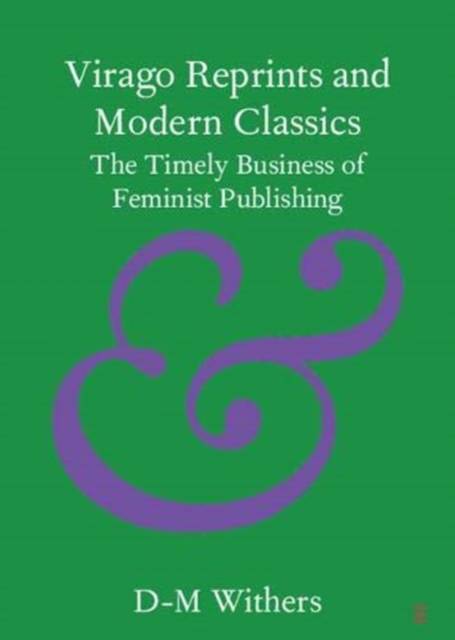
- Afhalen na 1 uur in een winkel met voorraad
- Gratis thuislevering in België vanaf € 30
- Ruim aanbod met 7 miljoen producten
- Afhalen na 1 uur in een winkel met voorraad
- Gratis thuislevering in België vanaf € 30
- Ruim aanbod met 7 miljoen producten
Zoeken
€ 25,95
+ 51 punten
Omschrijving
Reprinting, republishing and re-covering old books in new clothes is an established publishing practice. How are books that have fallen out of taste and favour resituated by publishers, and recognised by readers, as relevant and timely? This Element outlines three historical textures within British culture of the late 1970s and early 1980s - History, Remembrance and Heritage - that enabled Virago's reprint publishing to become a commercial and cultural success. With detailed archival case studies of the Virago Reprint Library, Testament of Youth and the Virago Modern Classics, it elaborates how reprints were profitable for the publisher and moved Virago's books - and the Virago brand name - from the periphery of culture to the centre. Throughout Virago's reprint publishing - and especially with the Modern Classics - the epistemic revelation that women writers were forgotten and could, therefore, be rediscovered, was repeated, again and again, and made culturally productive through the marketplace.
Specificaties
Betrokkenen
- Auteur(s):
- Uitgeverij:
Inhoud
- Aantal bladzijden:
- 108
- Taal:
- Engels
- Reeks:
Eigenschappen
- Productcode (EAN):
- 9781108813358
- Verschijningsdatum:
- 20/05/2021
- Uitvoering:
- Paperback
- Formaat:
- Trade paperback (VS)
- Afmetingen:
- 127 mm x 178 mm
- Gewicht:
- 99 g

Alleen bij Standaard Boekhandel
+ 51 punten op je klantenkaart van Standaard Boekhandel
Beoordelingen
We publiceren alleen reviews die voldoen aan de voorwaarden voor reviews. Bekijk onze voorwaarden voor reviews.








